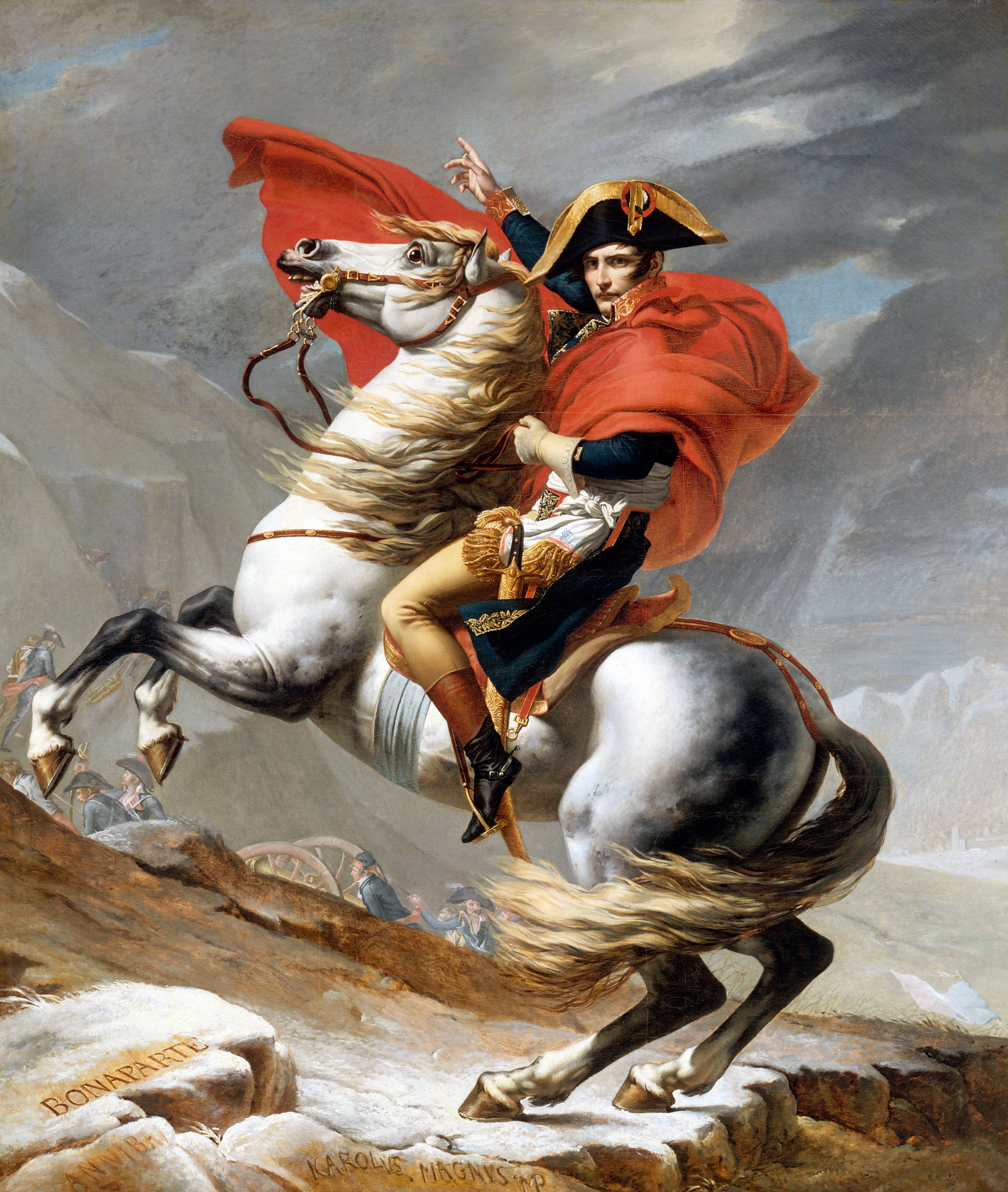
In the same week that one of Napoleon Bonaparte’s bicorne hats sold for €1.9 million ($2.1 million) at auction in Paris, Ridley Scott’s new historical drama about France’s first Emperor was released in cinemas. It’s been disproven that Bonaparte was an unusually short man—5’7” was well above average at the time and is only 3” below the average Frenchman’s height today—so perhaps the most iconic visual thing about Napoleon was his hats.
The popularity of hat-wearing trailed off in the mid-20th century, which is a shame given hats’ power to become a signature look for the wearer (think Boy George, Queen Elizabeth II, or Yogi Bear). So, we’re looking back at art history to find iconic hats that give Napoleon’s a run for its money.
Eugène Delacroix
Liberty Leading the People (1830)
Photo: courtesy of the Louvre.
Is there anything more iconic than liberation? Delacroix’ heroine Marianne—the popular personification of France since the late 18th century—is wearing a Phrygian cap: a soft conical cap which folds over at the peak. Phrygian caps have been worn since antiquity and were a signature look for revolutionaries in both America and France. However, it was actually a similar soft cap called the Pileus which was worn by freemen released from enslavement in Republican Rome, leading to the association with liberation when the Phyrgian became confused for it at some point in history.
5 hats for good intentions.
-1 hat for mistaking it for another hat.
🎩🎩🎩🎩
Rene Magritte
Le lieu common (1964)
Photo: courtesy of Christie’s.
Bowler hats became a signature for the Belgian artist Rene Magritte, who painted them in his Surrealist works more than 50 times over the course of 40 years. Bowler hats were first designed in 1849 for the British nobleman Edward Coke, but they became so popular with the growing bourgeoisie that they were soon ubiquitous in the U.K. For Magritte they represented, well, sort of nothingness, and the artist loved how bowler hats could render a figure totally anonymous, blending them into an ambiguous middle-class crowd.
4 hats for recognizability.
-1 hat for nothingness.
🎩🎩🎩
Giuseppe Arcimboldo
The Librarian (1566)
Photo: Imagno/Getty Images.
This literary hat painted in 1566 is a creative departure for Giuseppe Arcimboldo, who is better known for his portraits of people made out of vegetables. The Librarian is thought to show the historian Wolfgang Lazius, who served in the courts of the Habsburg Emperors alongside Arcimbolo when the painter was the official court portraitist to Ferdinand I, Maximillan II, and Rudolf II. It’s hard to believe that this feat of Surrealism was made almost 600 years ago.
4 hats for knowledge.
-1 hat for water-resistance.
🎩🎩🎩
Jan van Eyck
The Arnolfini Portrait (1434)
Photo: courtesy of National Gallery, London.
One of art history’s most immediately recognizable couples, The Arnolfini Portrait often gets attention for the reflection of van Eyck in the background, the debate about whether the female figure is pregnant in the portrait, and the fact that the pair don’t exactly look thrilled about their nuptials. Despite looking heavy and oversized enough to put the giant hat Pharrell Williams wore to the 2014 Grammys to shame, wealth merchant Giovanni Arnolfini’s hat is actually made of lightweight plaited straw dyed back, which was a popular option for summertime headgear in the 1430s.
4 hats for breeziness.
-2 hats for awkwardness.
🎩🎩
Elisabeth Vigee Le Brun
Self-Portrait in a Straw Hat (1782)
Photo: Universal History Archive/Universal Images Group via Getty Images.
Vigée Le Brun was was one of four women artists admitted to the Académie royale de la peinture et de sculpture in the 18th century, and she was a close friend and frequent painter of Marie-Antoinette. In this portrait, Vigée Le Brun lets her hair loose—literally. She would have been expected to wear a powdered wig for a formal portrait like this, and her straw hat with fresh flowers ties this painting to shepherdess portraits throughout art history as a romantic symbol of womanly independence. Interestingly, her bestie Marie had an entire rustic retreat, fit with a dairy, farm, and mill, built in the park of Versailles, such was the feminist farm fantasy.
3 hats for independence.
-1 hat for hat hair.
🎩🎩
More Trending Stories:
Masterpiece or Hot Mess? Here Are 7 Bad Paintings by Famous Artists
Who Won Auction Week? Here Are 9 Takeaways From New York’s Nearly $2 Billion Fall Sales
Kurt Cobain’s Old Jeans Just Set an Auction Record for Levi’s
Seller’s Remorse: How a Thrift Store Owner Let a $191,000 Painting Slip Through His Fingers for $4
A Prankster Used A.I. to ‘Improve’ Edward Hopper’s Classic ‘Nighthawks’
Chinese Artist Chen Ke Celebrates the Women of Bauhaus in a Colorful, Mixed-Media Paris Debut
A Centuries-Spanning Exhibition Investigates the Age-Old Lure of Money
Meet the Woman Behind ‘Weird Medieval Guys,’ the Internet Hit Mining Odd Art From the Middle Ages